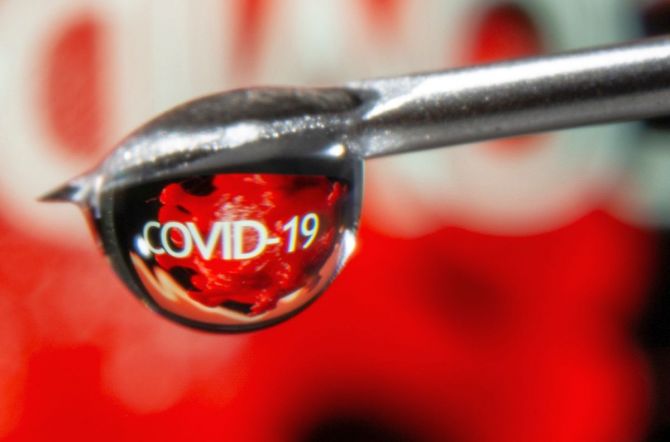The government plans to immunise 30 million people in the first phase, starting February, and by July, the target is to vaccinate 250 million people, reports Sohini Das.

If all goes well, India may get its first vaccine for Covid-19 around February 2021. According to sources, the country’s drug regulator is likely to issue an emergency use authorisation to at least one vaccine candidate by the end of January. This would be procured by the government to vaccinate those on the priority list, that is, frontline health workers and the vulnerable population.
“The NITI Aayog, members of the Central Drugs Standard Control Organisation and the Indian Council of Medical Research are keeping a real-time watch on the clinical trials that are in advanced stages. By December-end, they expect to have at least interim data from these trials and, based on that, the CDSCO is likely to give an EUA in January,” said a source.
Industry sources further indicated that data from AstraZeneca’s large-scale United Kingdom trials (on around 30,000 subjects) would be ready by December and after that it could be submitted to the Indian regulator.
Meanwhile, its Pune-based partner, Serum Institute of India, has finished recruiting 1,600 subjects for the Phase-3 trials of Covishield (the AstraZeneca vaccine candidate). SII plans to submit the interim data of the Indian leg of the trial in December.
“The regulator is likely to take a call on whether to allow an EUA based on this data. It can come in January and the government immunisation of the Covid-19 vaccine can start as early as February,” said an industry source.
Syringe makers have also confirmed similar timelines. Vaccine makers usually do not procure syringes (they are procured by immunisation agencies like the government or UNICEF), but they do indicate timelines for the requirement).
“The government has placed an order of 50-60 million syringes with us. It has also placed orders with other firms and one can expect that the total order size could be around 100 million or so,” said one syringe maker.
These orders would be delivered around January. The government already has an estimated inventory of around 150 million syringes.
SII has said it would help ICMR to “pursue early availability of this product for India”. Adar Poonawalla, CEO of SII, recently indicated that the firm would submit data and apply for an EUA in December. If the approval comes in January (contingent on robust efficacy data), then the Serum-AstraZeneca vaccine would be available to the priority list population by the end of January or February.
SII will have 200 million doses ready by January, of which 50 per cent, around 100 million doses, would be for India. The firm is ramping up capacity to be able to make around 100 million doses per month by then. The vaccine may be priced at Rs 250-300 per dose for the government, while SII is likely to sell it in markets at Rs 500-600 a dose by April-May.
Bharat Biotech has also started Phase-3 trials for Covaxin. The plan is to conduct Phase-3 trials on 28,000 subjects. Sai Prasad, executive director, had said Bharat Biotech expected to generate preliminary data by April.
By January-February, Bharat Biotech would have observational data of five-six months from volunteers who got the jab in the Phase-1 trial.
One patient who got the Covaxin shot in Phase-1 trial suffered an adverse reaction. But the company said upon investigation, it was found that the incident was not linked to the vaccine.
The government has recently provided a stimulus of Rs 900 crore for Covid-19 vaccine research and part of this fund is expected to go towards trials.
“For large-scale Phase-3 trials, around Rs 150 crore would be needed, and we are in discussion with the government to see when and how this can be disbursed,” said one vaccine maker.
Zydus Cadila’s candidate ZyCoV-D is also entering Phase-3 trials. They expect initial data to be available in March-April. Phase-2/3 trial data from the Indian arm of Sputnik V and Phase-3 trial data from the Indian arm of Novavax’s vaccine candidate would also be available around March-April.
So, around April, India would have the choice of multiple vaccines.
The government plans to immunise 30 million in the first phase, starting February, and by July, the target is to vaccinate 250 million people.












 © 2025
© 2025